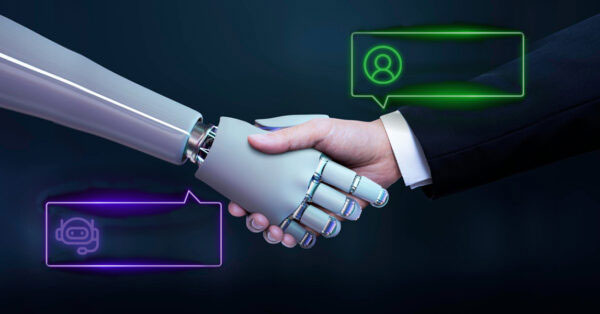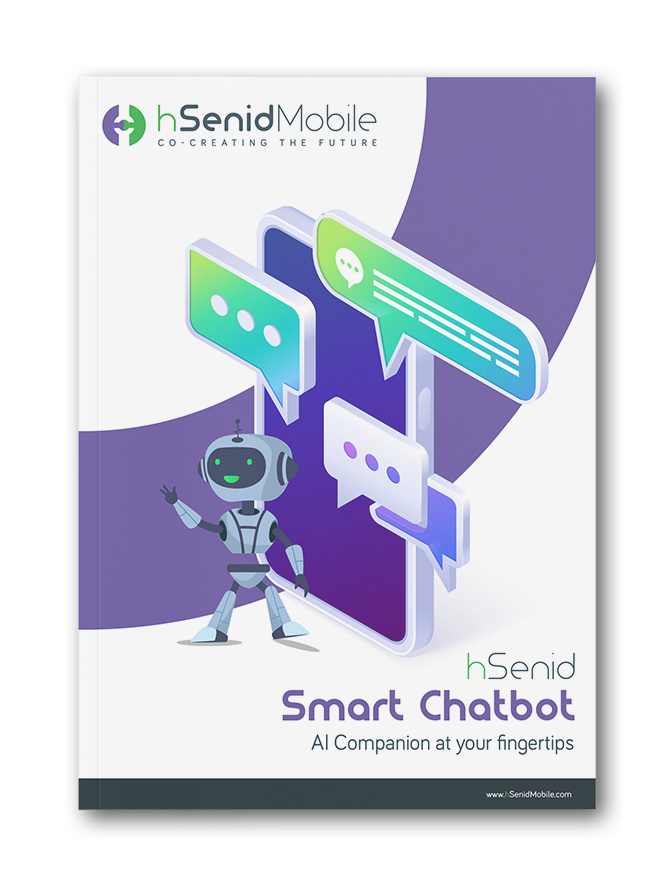In the fast-paced world of business, the pressure from a surge in customer
inquiries can be overwhelming. If your support team is struggling to keep up
with queries across different channels, your high-traffic website is
experiencing low conversion rates due to navigational complexities, or if
you’re stuck with a chatbot that doesn’t deliver as promised, leaving your
one-time investment with unsatisfactory ROI, it might be time to consider
adopting or switching to the right conversational AI platform.
Discovering the
ideal chatbot
for your business is critical. It involves aligning the chatbot’s capabilities
with your operational needs. This blog post will guide you through key
insights to help you find the perfect chatbot match for your business needs.
But first, let’s begin with:
At some point in time, you may have wondered if a chatbot can be trusted to understand and generate the right response to customer queries during every interaction. Well, absolutely, statistics show that chatbots can proficiently address 80% of standard questions . Further, the Natural Language Processing (NLP) feature empowers these assistants to grasp the intricacies of human language and understand nuances, context and sentiment of the user. This ensures the chatbot comprehends the meaning behind queries effectively, even when presented in diverse or colloquial language. For instance, for a business with Bangladesh clients, communication may happen in Bangla or Banglish, where Bengali is typed using English characters. Without this capability, the chatbot may struggle to respond, frequently ask for query repeats, or hesitate to respond to users expressing themselves in their natural conversational styles.
Additionally, Conversational AI chatbots, with their intelligent AI features, tailor each interaction into a refined sales pitch, enhancing user engagement and potentially fostering business growth. This personalized approach positions the chatbot not just as a responder but as an active contributor to your sales and customer engagement strategy.
What is a Conversational AI Platform?
Serving as the cognitive powerhouse driving chatbot interactions, this technology is powered by Natural Language Processing (NLP) and advanced AI/ML capabilities. It excels at comprehending words, discerning intentions, and responding in users’ preferred language and style, delivering contextually relevant and accurate information to create a more human-like experience. Furthermore, it continuously learns from every interaction by leveraging its machine learning capability, ensuring conversations become increasingly seamless and efficient over time.What functionalities should you look out for when onboarding a Conversational AI chatbot?
No, you wouldn’t want to make the most common yet worst mistake of ending up with a chatbot that does not meet your requirements, at least not this time. So make your investment worthwhile by looking out for these key qualities that are very crucial in conversational AI chatbot adoption.Efficient Handling of Routine Queries
It may seem like a basic and simplistic feature, overlooking its importance could have your business end up in huge losses and a massive number of unhappy potential customers. While many chatbots claim competency in this area, the true measure of efficiency lies in their ability to accurately and promptly address common customer questions, maintaining consistency in every interaction, without errors. This not only minimizes the reliance on human agents for simple and unproductive tasks which are time-consuming but also optimizes labor hours. Agents can focus on more strategic tasks, while the chatbot ensures customer satisfaction consistently surpasses expectations. Studies indicate that 53% of respondents find prolonged response times most frustrating when engaging with businesses, while 62% prefer interacting with a bot than waiting. Thus, having an AI chatbot on board proves invaluable as it minimizes response times, delivers precise answers, and obviates the need for customers to seek additional support from agents, enhancing the overall chatbot support experience.Robust AI Intelligence Capabilities
What use is a chatbot without an ‘AI’ component in it? To effectively comprehend language, context, and sentiment, whether expressed in speech or text form a chatbot should first identify and comprehend the language and its style, and especially support multilingualism, including hybrid transliterated languages.At some point in time, you may have wondered if a chatbot can be trusted to understand and generate the right response to customer queries during every interaction. Well, absolutely, statistics show that chatbots can proficiently address 80% of standard questions . Further, the Natural Language Processing (NLP) feature empowers these assistants to grasp the intricacies of human language and understand nuances, context and sentiment of the user. This ensures the chatbot comprehends the meaning behind queries effectively, even when presented in diverse or colloquial language. For instance, for a business with Bangladesh clients, communication may happen in Bangla or Banglish, where Bengali is typed using English characters. Without this capability, the chatbot may struggle to respond, frequently ask for query repeats, or hesitate to respond to users expressing themselves in their natural conversational styles.
Additionally, Conversational AI chatbots, with their intelligent AI features, tailor each interaction into a refined sales pitch, enhancing user engagement and potentially fostering business growth. This personalized approach positions the chatbot not just as a responder but as an active contributor to your sales and customer engagement strategy.








